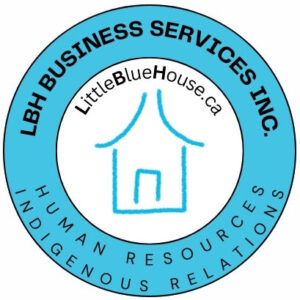This article is part of a series of articles written to help people understand the role of HR and the related parts of an organization. Click this link to learn more about “What is The Role of Human Resources?“
Supervisors may need to learn their hard-skills training responsibilities in this busy corporate world. Supervisors must give employees basic, advanced, and continued hard skills training for all employee’s assigned tasks. Human Resources supports the supervisors in this training.
What Are Hard Skills?
Hard skills are specific, teachable abilities or knowledge that can be quantified, measured, and typically acquired through formal education, training programs, or on-the-job experience.
Hard skills are often technical and are necessary for carrying out specific tasks or duties within a job or profession. Examples of hard skills include proficiency in programming languages (Source: What are hard skills? A list of hard skills examples in demand | Samelane . ), operating machinery, mathematical skills, writing, data analysis, and fluency in a foreign language.
. ), operating machinery, mathematical skills, writing, data analysis, and fluency in a foreign language.
These skills are often listed on job ads, job descriptions, and resumes and are crucial for performing job functions effectively.
If you want to learn more about hard skills and an effective approach to learning them try the book “Hard Skills ” on Amazon.
” on Amazon.
Basic Hard Skills Training
Basic hard skills training refers to the foundational instruction provided to individuals in a particular field or industry, focusing on essential technical competencies and abilities required to perform specific tasks or functions. These skills are typically tangible, measurable, and directly applicable to the job.
Basic hard skills training may vary depending on the industry or job role but often includes fundamental knowledge and proficiency in areas such as:
- Technical skills: These are specific abilities related to operating machinery, using tools, or performing tasks within a particular field. For example, technical skills involve machine operation, assembly, or quality control in manufacturing.
- Computer skills: Basic proficiency in using computers and software programs relevant to the job, such as Microsoft Office applications, data entry software, or industry-specific software tools.
- Language skills: Depending on the job requirements, basic proficiency in a particular language may be necessary, especially in multilingual workplaces or industries with international communication needs.
- Numeracy skills: Basic mathematical abilities such as arithmetic, algebra, and data analysis may be essential for tasks involving measurements, calculations, or financial transactions.
- Safety training: Basic knowledge of workplace safety protocols, hazard identification, emergency procedures, and using personal protective equipment (PPE) to ensure a safe working environment.
- Equipment operation: Training on the safe and efficient operation of (Source: BIS Training Solutions Experts On Learnexus | Learnexus
 . ) equipment and machinery used in the workplace, including proper setup, maintenance, and troubleshooting.
. ) equipment and machinery used in the workplace, including proper setup, maintenance, and troubleshooting. - Compliance and regulations: Familiarity with relevant laws, regulations, and industry standards governing the job role, such as environmental regulations, building codes, or occupational health and safety requirements.
Basic hard skills training often forms the foundation for more advanced skills and knowledge. They enable individuals to perform their job duties well and contribute to the success of their organization.
A supervisor can expect to give basic training for one to six months to a new employee who has yet to gain direct experience in the job.
Advanced Hard Skills Training
Advanced hard skills training builds upon the foundational knowledge and competencies gained through basic hard skills training. It focuses on developing more specialized and advanced technical abilities, often required for complex tasks, specialized roles, or leadership positions within a particular field or industry.
Advanced hard skills training may include:
- Specialized technical skills: In-depth training in specific areas of expertise, such as advanced programming languages for software developers, advanced machining techniques for manufacturing engineers, or advanced medical procedures for healthcare professionals.
- Advanced computer skills: Mastery of advanced software applications or programming languages relevant to the job, including specialized software tools for data analysis, engineering design, financial modelling, or scientific research.
- Industry-specific knowledge: Deep understanding of industry trends, best practices, regulations, and emerging technologies relevant to the job role, allowing individuals to stay current and make informed decisions.
- Advanced analytical skills: Training in advanced data analysis techniques, statistical methods, or modelling approaches to extract insights, identify patterns, and solve complex problems using data.
- Leadership and management skills: Development of skills related to team leadership, project management, decision-making, conflict resolution, and strategic planning, preparing individuals for supervisory or managerial roles.
- Advanced safety training: Specialized training on handling hazardous materials, operating high-risk equipment, managing emergencies, or conducting risk assessments in complex work environments.
- Research and innovation: Training in research methodologies, experimental design, and innovation processes to drive continuous improvement, develop new products or services, or solve challenging technical problems.
- Regulatory compliance and quality assurance: Advanced knowledge of regulatory requirements, quality standards, and compliance frameworks relevant to the industry, ensuring products and services meet or exceed regulatory expectations.
Advanced hard skills training deepens individuals’ expertise, enhances their problem-solving abilities, and empowers them to take on more challenging organizational responsibilities. It tailors to professionals’ specific needs and career aspirations in their respective fields.
After completing basic hard skills training for a new employee, the supervisor must identify employees suited for advanced hard skills training. After training, employees may need to be more suited for advanced hard skills training. It may be months or years before they are ready.
Supervisors can expect to give advanced hard skills training to employees for months or years. Additional funding or budget may need to be requested.
Ongoing Hard Skills Training
Ongoing hard skills training is essential for professionals to stay competitive, adapt to evolving industry trends, and continuously improve their performance. It involves regularly updating and expanding one’s technical abilities, staying abreast of new developments, and refining existing skills.
Supervisors may not conduct this ongoing hard skills training directly but must identify how to support employees. At this time, supervisors need to step up and fight for their rock-star employees.
Here are some recommendations for ongoing hard skills training:
- Continuing Education Programs: Enroll in relevant courses, workshops, seminars, or certification programs offered by professional organizations, universities, or online learning platforms. These programs can provide updated knowledge and advanced training in specific areas of expertise.
- Professional Development Resources: Utilize industry publications, journals, online forums, and professional associations to access the latest research, best practices, and resources in your field. Attend conferences, webinars, or networking events where exchanging ideas with peers and learning from industry experts can happen.
- Cross-Training Opportunities: Seek opportunities to expand your skill set by learning complementary skills or exploring related disciplines within your industry. Cross-training can enhance your versatility, problem-solving abilities, and career prospects.
- Mentorship and Coaching: Engage with experienced mentors or coaches who can provide guidance, feedback, and support. Learning from seasoned professionals can offer valuable insights and accelerate your growth.
- Hands-On Practice: Apply your skills in real-world projects, experiments, or simulations to reinforce your learning and gain practical experience. Seek challenging assignments or volunteer for cross-functional projects to expand your capabilities and build confidence.
- Feedback and Reflection: Solicit input from colleagues, supervisors, or clients to identify areas for improvement and opportunities for growth. Reflect on your performance, successes, and setbacks to refine your skills and strategies continuously.
- Stay Updated on Technology: Keep abreast of emerging technologies, tools, and software relevant to your industry by following industry news, attending tech events, or participating in online communities. Embrace opportunities to learn new technologies and adapt your skills to meet changing demands.
- Self-Directed Learning: Take ownership of your professional development by setting learning goals, creating a personalized learning plan, and allocating time for self-study. Leverage online resources, tutorials, and open educational materials to explore new topics and acquire new skills at (Source: Unlocking Success: How to Foster a Culture of Continuous Learning and Professional Growth in Your Team – Soject
 . ) your own pace.
. ) your own pace.
By incorporating these strategies into your ongoing professional development efforts, you can maintain a competitive edge, adapt to industry changes, and continue to grow and excel in your career.
Human Resources Support
Supervisors are not alone in these hard skills training efforts! Contact your Human Resources department, peer supervisors, or manager for support.
Human resources (HR) can be crucial in supporting supervisors with hard skills training by providing resources, guidance, and infrastructure to facilitate ongoing professional development.
Here’s how HR can support supervisors in this regard:
- Identifying Training Needs: HR can collaborate with supervisors to assess the hard skills gaps within their teams and identify areas where additional training or development is needed. Needs could involve conducting skills assessments, performance evaluations, or surveys to pinpoint training needs.
- Curating Training Programs: HR can research, evaluate, and recommend relevant training programs, courses, or resources tailored to the hard skills requirements of supervisors and their teams. Programs may include in-person workshops, online courses, certification programs, or customized training modules.
- Facilitating Access to Training Resources: HR can provide supervisors access to learning management systems (LMS), online training platforms, or educational subscriptions to promote self-directed learning and ongoing skill development. They can also negotiate partnerships with training providers or secure funding for training initiatives.
- Coordinating Internal Training Sessions: HR can organize internal training sessions or workshops led by subject matter experts or external trainers to address specific hard skills gaps identified within the organization. These sessions can cover advanced technical skills, leadership development, or compliance training.
- Promoting Cross-Functional Training: HR can encourage cross-functional training opportunities by facilitating job rotations, shadowing experiences, or interdepartmental collaboration initiatives. Cross-training allows supervisors to gain exposure to different roles, perspectives, and skill sets within the organization.
- Providing Mentorship and Coaching: HR can establish mentorship programs or connect supervisors with experienced mentors or coaches who can provide guidance, advice, and support in their professional development journey. Mentors can offer insights, share best practices, and help supervisors navigate challenges in acquiring and honing hard skills.
- Tracking Training Effectiveness: HR can monitor and evaluate the effectiveness of hard skills training initiatives through metrics such as training completion rates, skill proficiency assessments, or feedback from supervisors and their teams. This feedback can inform future training decisions and ensure effective resource allocation.
- Creating a Learning Culture: HR can foster a culture of learning and skill development within the organization by recognizing and rewarding employees who actively seek opportunities to enhance their hard skills. A learning culture can include celebrating achievements, highlighting success stories, and integrating learning goals into performance evaluations.
By collaborating closely with supervisors and leveraging their expertise, HR can effectively support their hard skills training efforts and contribute to the overall growth and success of the organization.
What’s Next?
The best thing a supervisor can do to create a good team is always to be doing training! You must have a large group of dedicated employees with as many rock-star employees as possible. Improve your training knowledge with the Amazon book “Training & Development for Dummies “.
“.
If you don’t have an HR department or HR professional, consider using an HR Consultant or joining a service where you can ask HR-related questions like our Patreon.


